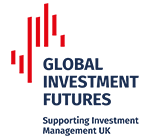
There are two burning issues on investors' minds this AGM season
Daily Telegraph - October 2019
Talk to anyone about voting these days, and you’re likely to send them into cold sweats.
A seemingly endless stream of referenda, general elections, meaningful votes and now indicative votes has left many people channelling Brenda from Bristol, who famously exclaimed when informed by a reporter of the impending 2017 general election: “not another one!”
Spare a thought then, for those who are about to enter the annual marathon voting season that takes place between March and July.
Company annual general meetings (AGMs) are one of the key ways shareholders hold the big businesses they invest in to account. The health of the UK’s listed businesses is of great importance to the economic wellbeing of the country. These companies employ thousands of people directly but also provide many more jobs indirectly to the hundreds of small businesses that depend on them, as well as paying taxes to fund hospitals, schools, roads and our police force.
Investment managers make up over a third of listed companies’ shareholders – powerful stewards who aim to steer companies towards delivering sustainable value over the long term. They engage throughout the year to drive change behind the scenes, but ultimately if they feel their views aren’t being reflected in company behaviour, they will use their vote at the AGM to make their feelings known.
AGMs provide a crucial intervention point for shareholders and allows them to make sure big business is acting in a way that promotes long-term, sustainable success. Because ultimately, the money invested in those companies doesn’t belong to investment managers, it belongs to the millions of savers and investors.
So, what is on shareholders’ minds in 2019 AGM season?
The BEIS select committee report yesterday showed that we are never far away from debates around executive pay. But there is now an ever greater focus on the different elements that make up an executives pay packet.
Asset managers want companies to be able to attract and retain the top talent. Employing the best people helps build well-performing companies, which in turn delivers long-term returns. Their pay should be aligned with long term company performance and at levels that are justifiable to shareholders.
But we also want those pay packets put together in a way that is fair.
Pension payments for top executives have often been used as a mechanism to boost total pay, but this year shareholders will be insisting that new directors have pension contributions in line with the rest of the workforce. If the shop floor workers get 8pc pension contribution, then the executives should not be getting more.
This consistency is not about turning away talent, but about making sure we’re rewarding it fairly.
An executive’s pay package may feature long-term incentives and share options, but a pension contribution is one of the few benefits that everyone in the company enjoys.
What is fair about an executive getting a pension payment four or five times that of their employees, especially given it’ll be a percentage of a much higher salary?
A change in the UK Corporate Governance Code, and then further changes to the Investment Association’s “Principles of Remuneration” in November made clear that pension payments should be paid in line with the workforce, providing the leverage for shareholders to demand change.
The early signs are good. In the last three weeks, we have seen HSBC directors voluntarily cut their pension contributions from 30pc to 10pc and Aviva announced that their new chief executive would receive a pension contribution of 14pc, half the 28pc of their previous boss. Lloyds has also begun the journey of rationalising their pension payments by reducing their chief executive’s contribution from 46pc to 33pc. There is no doubt that the example set by those firms will be in the minds of others.
Shareholders recognise that pensions for existing directors may not fall in line quite so quickly. But they expect to see a marked downward trajectory, with firms making a real effort to deliver the change in a time-sensitive manner.
The spotlight this year will also be on boardroom diversity. It is almost a decade since the Government’s Davies review first put the issue on the agenda in a meaningful way. While there has been much welcome progress there are still a frustrating numbers of companies delivering what looks closer to tokenism than diversity.
A fifth of the FTSE 350 have just one woman on their board, despite the Hampton-Alexander review requiring a third of boardroom seats to be taken up by women by 2020. As the industry’s voice earlier this month we made our members’ feelings known when we wrote with the Hampton-Alexander Review to 69 FTSE 350 companies to warn about their poor diversity. Shareholders will not look kindly on companies lagging behind acceptable social norms.
These are just two of the many areas where investment managers will be flexing their muscles this forthcoming AGM season, ensuring the money entrusted in us by millions of savers and investors is reaping sustainable long-term returns.
It’s very likely to be the only type of voting anyone wants to talk about right now.






